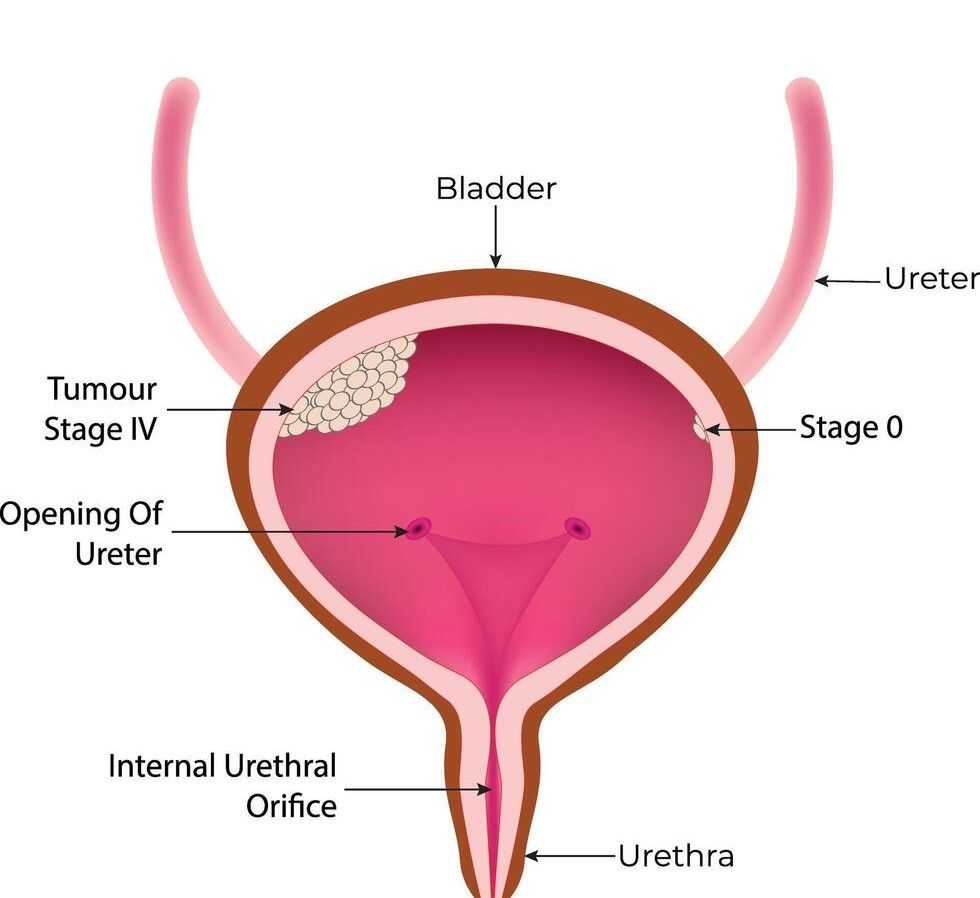What Causes It?
Tobacco use - Smoking is the single most important risk factor, causing about half of all bladder cancers.
Occupational exposure to chemicals - Workers in industries that use certain organic chemicals, such as dyes, rubber, leather, textiles, paint, and printing products, may be at higher risk.
Chronic bladder inflammation - Recurring urinary infections, kidney and bladder stones, or other causes of chronic bladder irritation may increase risk.
Age - Risk increases with age, with most diagnoses occurring in people over 55.
Gender - Men are 3-4 times more likely to develop bladder cancer than women.
Race and ethnicity - White/Caucasian individuals have a higher rate of bladder cancer than other ethnic groups.
Personal or family history of bladder cancer - Having had bladder cancer increases risk of recurrence; some genetic factors may also increase risk.
Previous cancer treatment - Treatment with certain chemotherapy drugs or radiation therapy directed at the pelvis.
Arsenic in drinking water - High levels of arsenic in drinking water increase bladder cancer risk.
Genetic mutations - Certain inherited gene mutations may increase bladder cancer risk.
Signs & Symptoms
Blood in urine (hematuria) - The most common symptom, which may appear bright red or rusty/dark brown.
Frequent urination - Feeling the need to urinate more often than usual.
Painful urination - Discomfort or burning sensation during urination.
Back pain - Pain in the lower back on one side of the body.
Pelvic pain - Discomfort or pressure in the pelvic region.
Urinary urgency - Feeling an immediate need to urinate, even when the bladder isn't full.
Inability to urinate - Despite feeling the urge.
Swelling in the lower legs - In advanced cases.
Unexplained weight loss - Particularly in advanced cases.
Fatigue - Persistent tiredness that doesn't improve with rest.
